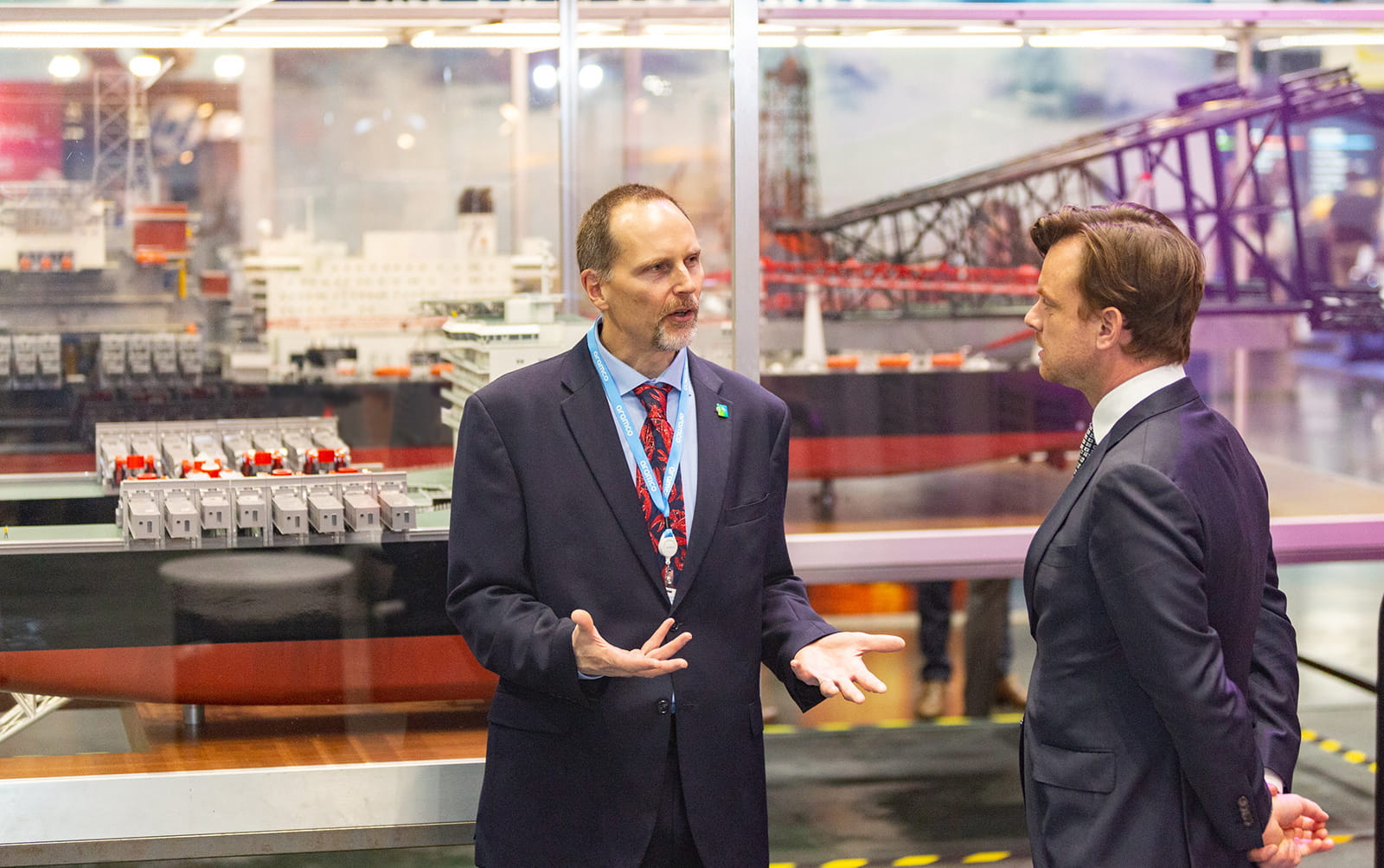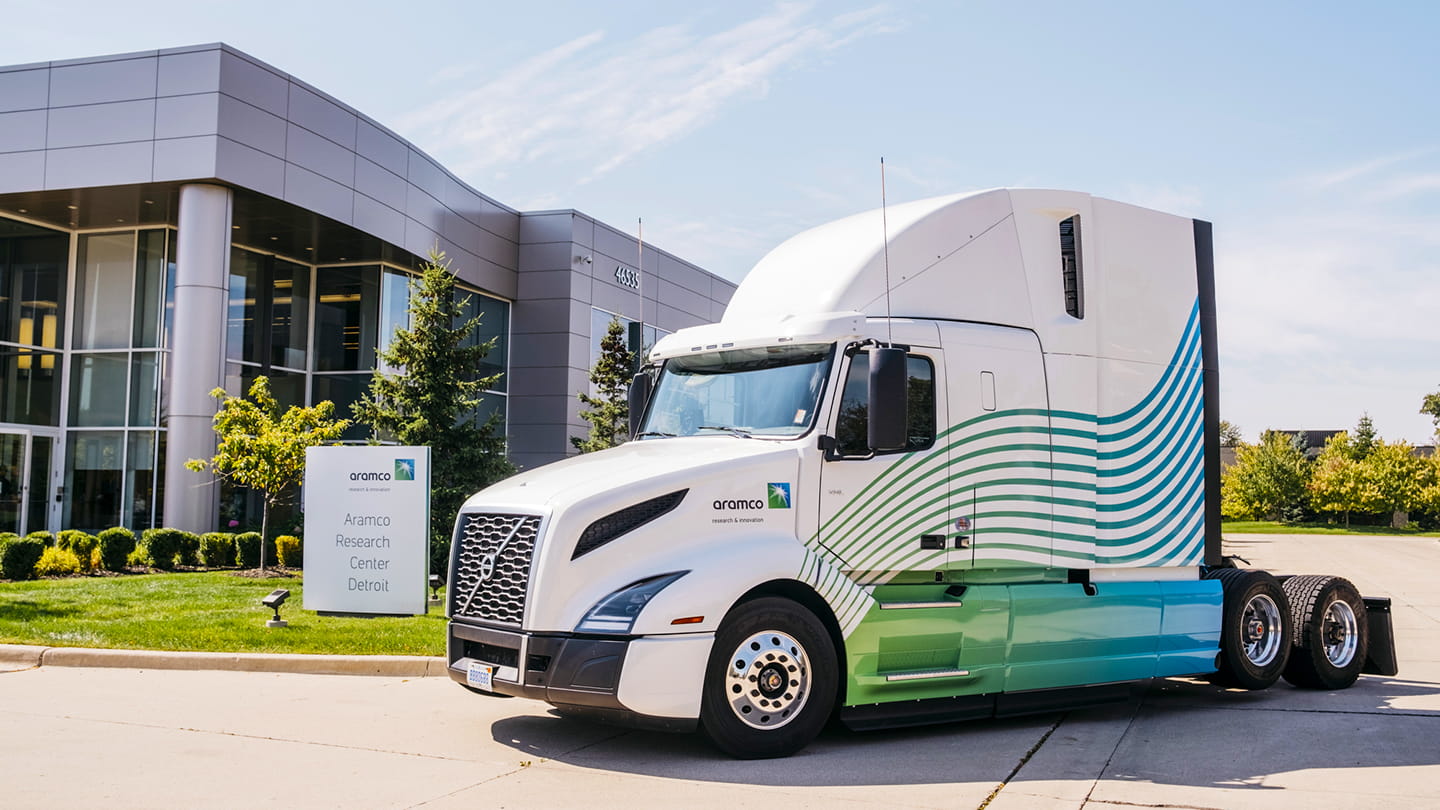Deploying carbon capture technology on ships

Aramco researchers talk with members of the shipping industry about adapting mobile carbon capture technology onboard ships to reduce CO2 emissions.
Deploying carbon capture technology onboard ships has taken a major step forward with a seven-member consortium initiating a two-year, three-phase project to demonstrate shipboard carbon capture.
The Oil and Gas Climate Initiative (OGCI), the Global Centre for Maritime Decarbonisation, and leading tanker shipping company Stena Bulk recently announced Project REMARCCABLE (Realising Maritime Carbon Capture to demonstrate the Ability to Lower Emissions) to investigate the full value chain of on-board capture and storage, vessel offloading and final sequestration or utilization of the captured carbon dioxide (CO2).
The project is the extension of a feasibility study conducted by OGCI and Stena Bulk in 2021 to examine the technical challenges of adapting carbon capture for a Suezmax tanker. That project evolved from the successes demonstrated by Aramco's mobile carbon capture program focused on capturing CO2 from passenger cars and heavy-duty trucks.

Researchers are excited to explore mobile carbon capture and its application with the shipping sector.
Researchers at the Aramco Research Center-Detroit are excited to explore this technology and its application with the shipping sector by sharing our learnings from the work conducted with cars and trucks.
The project targets at least a 30% absolute capture rate for carbon dioxide (CO2) during normal vessel operations and on deep-sea voyages. By working with organizations to offload and sequester or reuse the CO2, the project aims to be the world's first initiative demonstrating end-to-end shipboard carbon capture at such a large scale and across the full value chain.
Researchers say the greatest hurdle is not necessarily technical, but rather the economics of the system. Identifying a pathway to lower upfront and operational costs is a primary goal of the project. If the technology can become economically feasible for ship operators, it can contribute significantly to the International Maritime Organization's (IMO) ambitions for greenhouse gas emissions reduction by 2030 and 2050.
Aramco is a founding member of OGCI and has been a leader in lowering carbon intensity from oil and gas operations, from the wellhead to the refinery gate. The company's global research and development network includes a dedicated engines and fuels program to demonstrate more efficient transport solutions as well as new technologies to capture CO2 and transform it into high value products.



